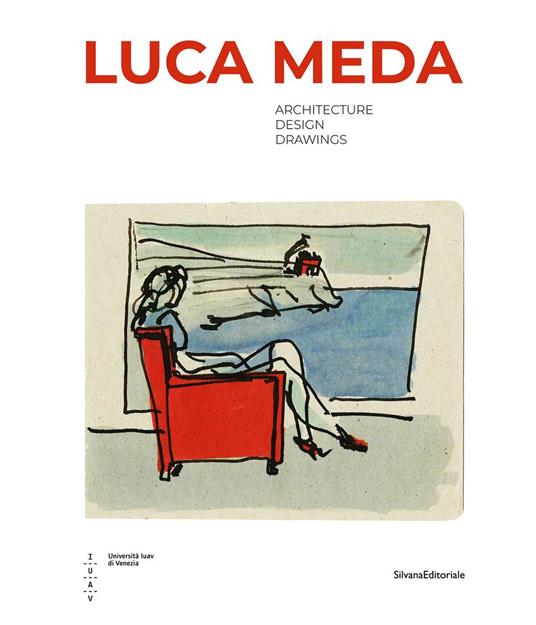monograph
• March 2021
Luca Meda. Architecture, Design, Drawings
Author: Autori vari
Publisher: Silvana Editoriale
Translation languages: ita > en
Translators: Jeremy Carden, Sarah Elizabeth Cree, Janice Loggans per Il Nuovo Traduttore Letterario
This is the first outstanding monograph dedicated to the multi-faceted work of Luca Meda, the architect and designer who was a driving force in the Italian industrial design scene between the 1960s and 1990s.
The volume contains critical essays, interviews and an annotated catalogue of his major works.
The city and everyday objects
By Serena Maffioletti
Flowing irresistibly across the pages of this book are the drawings of Luca Meda, the designer who transformed objects, furniture and architecture into stories of people, places and feelings, which he portrayed as familiar landscapes, as fondly evoked interiors.
The sketches, in a myriad of colours and with endless variations, which have now been ordered in the Projects Archive of the IUAV, piled up in the studio in via Montenapoleone and then in via Monte di Pietà. More than professional studios they were almost solitary rooms of invention and creativity. In those sober spaces of Milanese neo-classicism and the post-war professional classes, Meda sketched his drawings as if they were stories, fairy tales of a way of living and dwelling. Every day those rapidly executed sketches found their way to the factories of the Brianza, where he was a daily, energetic and active presence through the execution phase together with the workers at Marelli and Girmi, producers of radios and small electrical appliances, and at furniture makers Longoni, Molteni, Dada, Unifor and Arflex.
The studio and the factory were complementary worlds, and Meda brought the same intensity to both: “I could talk about the pieces of furniture I have designed, looking at them together and speaking of them in terms of recollections; but again, I think that, rather than the design, what is most important is organizing the production, managing the product, creating the market. You can’t talk about industrial objects as if they were part of an ideal state of abstract things, removed from the contradictions of the economy or people’s opinions. Linked to all of this, of course, is the success or failure of a product, its ability to relate to real situations, to introduce modifications, to bring about shifts; only in this sense can one talk about progress, and only rarely does progress lie in the abstractness of novelties.”






